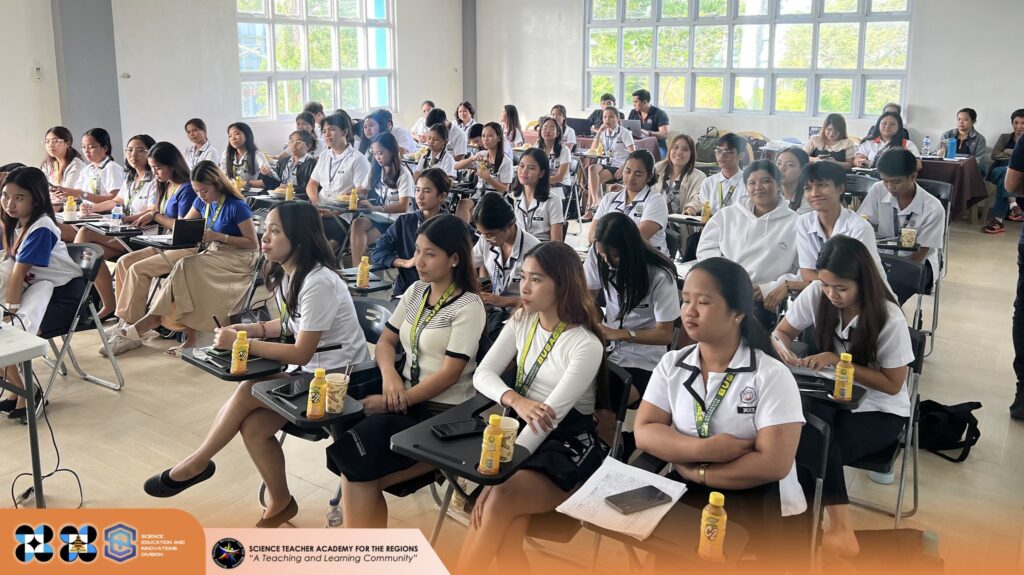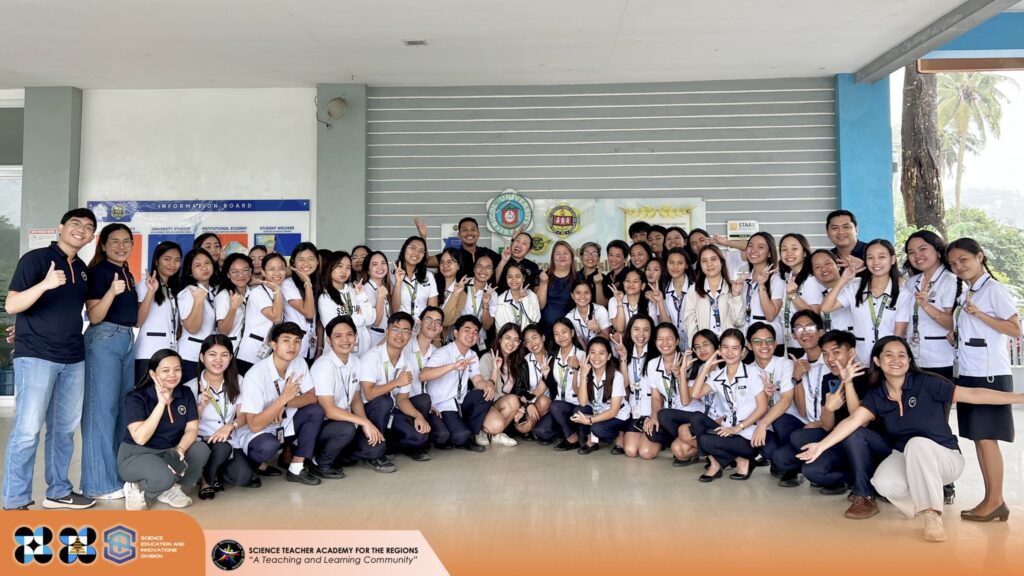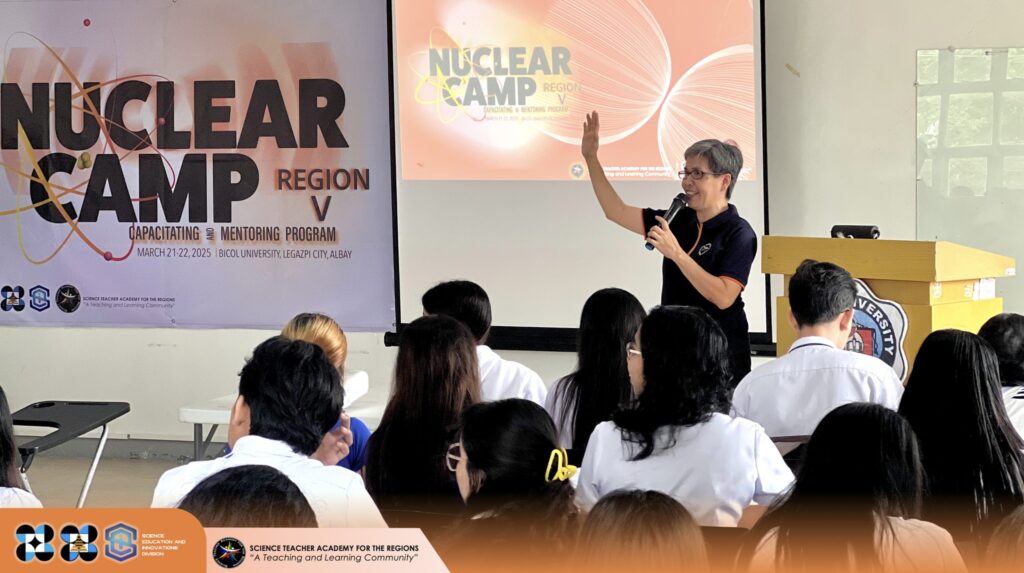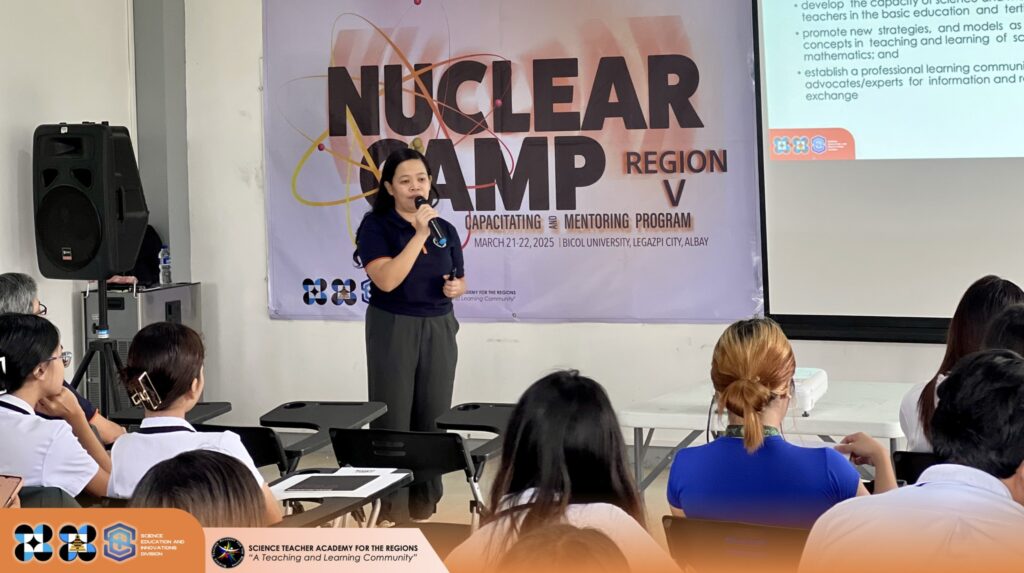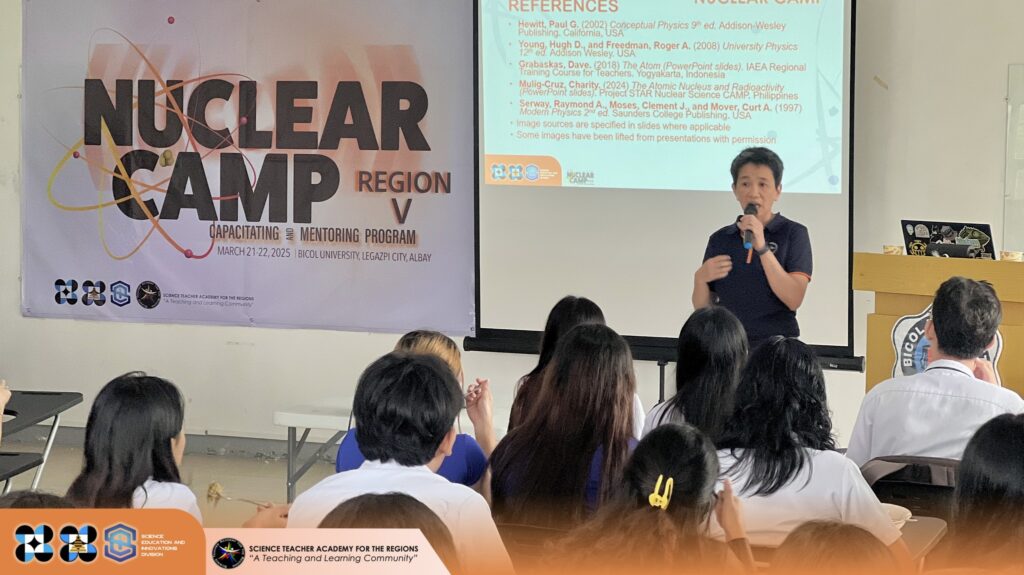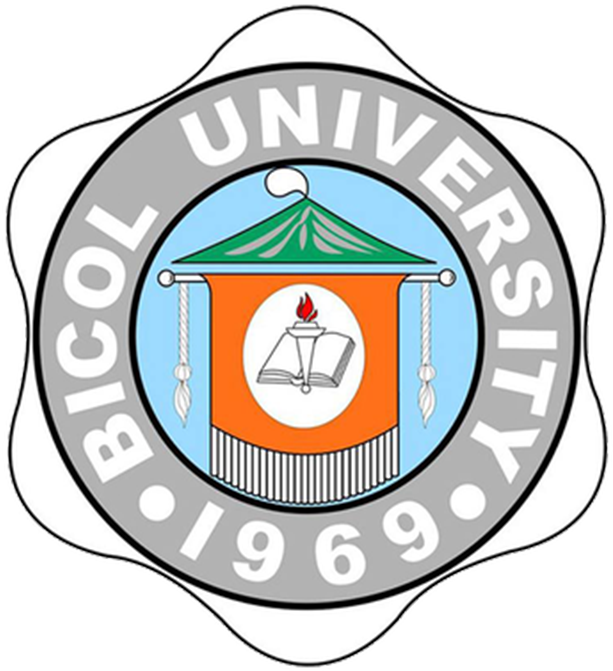Bicol University and DOST-SEI, Conduct a Nuclear CaMP for Preservice Teachers
On March 21-22, 2025, the Project STAR Science Team of Bicol University collaborated with the Department of Science and Technology – Science Education Institute (DOST-SEI) to conduct a Nuclear CaMP (Capacitating and Mentoring Program), hosted by the Regional Center for Science and Mathematics Education Development (RCSMED). The team is composed of faculty members of the College of Science. This activity is a regional rollout of a National level Nuclear CaMP conducted by DOST-SEI for teacher-trainers on August 5-8, 2024.
The event was held at the Student Activity and Innovation Hub, Student Union Building. Participants consisted of BSED students and faculty members from the College of Education. It aimed to introduce the participants to the fundamental concepts of nuclear science and its applications in the fields of health, agriculture, environment, and industry. The Nuclear Camp is part of broad efforts to strengthen science education in the Philippines, aligning with national goals to enhance scientific literacy and prepare educators to teach complex scientific concepts effectively.
Before the event, the DOST-SEI team paid a courtesy visit to Pres. Benjamin D. Nebres III. On Day 1, Dr. Lany L. Maceda, the Vice President for Research, Development, and Extension, graced the opening program with a Welcome Remarks. Ms. April D. Valdez, Senior Science Research Specialist of the Program Development Unit of DOST-SEI, presented the Statement of Objectives. The morning session covered the fundamental concepts of The Atomic Nucleus and Radioactivity, discussed by Prof. Jo-Ann M. Cordovilla of the Department of Physics and Meteorology. This was followed by a presentation on Fission, Fusion, and Nuclear Reactions by Prof. Magnolia Vida A. Cano of BU-RCSMED and the College of Science Department of Chemistry.
The afternoon session featured Dr. Alfons Jayson Pelgone, a medical physicist and faculty member from the Philippine Normal University’s Faculty of Science, Technology, Engineering, and Mathematics (FSTEM). Dr. Pelgone delivered insightful presentations on two critical topics: Biological Effects of Radiation and Biomedical Applications of Radiation. He also addressed several common misconceptions about medical radiation, fostering a deeper understanding among the participants. Dr. Pelgone was invited by the team to discuss this topic which aligns with his field of specialization.
Day 2 began with a discussion of Nuclear Science and Technology Applications in Environment, Agriculture, and Industry, with Prof. Jazzlyn T. Imperial of the BUCS Biology Department. This was followed by Prof. Cordovilla’s session on Nuclear Safety and Risk Management. To make the program more relevant for future educators, Prof. Magnolia Vida A. Cano presented Nuclear Science Activities for the Classroom, where preservice teachers engaged in hands-on activities designed to promote critical thinking and effective classroom integration of nuclear science concepts.
This initiative underscores the commitment to enhancing science education by equipping educators with knowledge about nuclear science and its diverse applications. By engaging future educators in nuclear science, the program sought to foster a deeper understanding of its benefits and risks, ultimately enriching the educational experience of students across the region.
